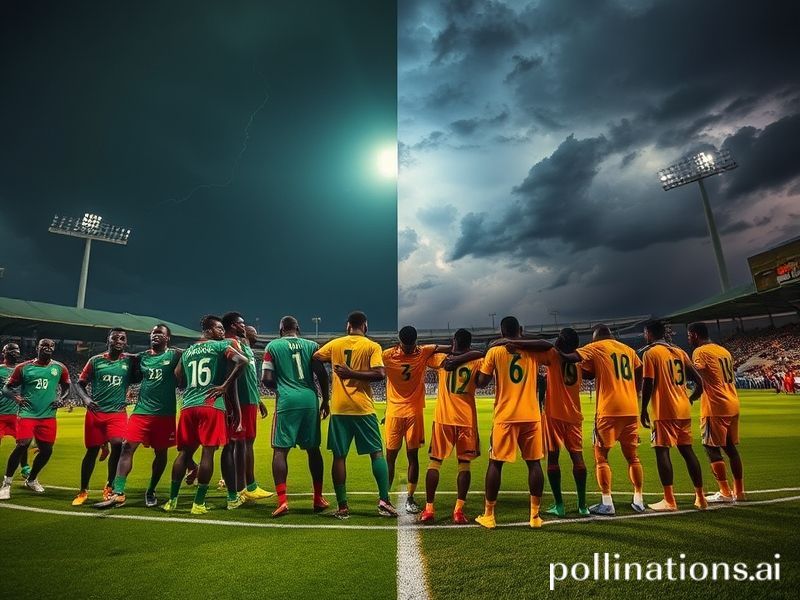Benin vs Zimbabwe: The Real Match Is Between Order and Chaos, Sponsored by Offshore Oddsmakers
Benin vs Zimbabwe: A Tale of Two Economies, One Currency Crisis, and the Global Circus That Watches
By the time the final whistle blows in Cotonou this weekend, the real score won’t be on the pitch—it’ll be in the IMF’s inbox. Benin versus Zimbabwe isn’t just an Africa Cup of Nations qualifier; it’s a geopolitical morality play wrapped in polyester kits and sponsored by a Chinese betting app nobody’s ever heard of. On the surface it’s 22 men chasing a ball, but beneath that it’s two countries auditioning for the same role: “Exhibit A in How to Survive the 21st Century Without Becoming a Meme.”
Benin, population 13 million, GDP smaller than Delaware’s rainy-day fund, has improbably positioned itself as West Africa’s Switzerland—minus the mountains, plus the humidity. The government in Porto-Novo (which is not, confusingly, the capital despite the name) has discovered that if you keep your coups to a tasteful minimum and your inflation under ten percent, the World Bank will send you just enough money to repave the airport every election cycle. Their secret weapon? Letting someone else—usually Nigeria—do the regional heavy lifting while quietly exporting cotton and a steady trickle of disgruntled TikTokers.
Zimbabwe, meanwhile, has spent two decades perfecting the art of macroeconomic slapstick. When your central bank starts printing 100-trillion-dollar notes, you’re no longer running a country; you’re producing performance art for hedge-fund analysts in London who think suffering is quaint. Harare’s latest wheeze is the “ZiG,” a gold-backed digital currency that sounds like a failed boy band and behaves like one too: flashes of promise, then a crash in fan engagement. The IMF keeps sending sternly worded PDFs; Zimbabwe keeps forwarding them to spam.
Globally, the match matters because it’s a stress test for two competing narratives. Western diplomats would like to believe that prudent micro-reforms (Benin) can still triumph over charismatic chaos (Zimbabwe). Beijing, on the other hand, has money on both horses and will happily sell either stadium Wi-Fi in exchange for mineral rights. The EU is watching to see which country better absorbs the next climate catastrophe without sending another wave of migrants across the Mediterranean. Spoiler: Neither looks promising, but at least Benin’s coastline is sinking elegantly.
For the average punter streaming on a cracked phone in Lagos or Lyon, the implications are personal. Every goal scored equals a few micro-points of national pride, which can be leveraged on social media for clout or, in darker corners, for ethnic point-scoring. Meanwhile, offshore sportsbooks—incorporated in Curaçao for tax purposes and existential deniability—are taking bets denominated in everything from Ethereum to prepaid electricity tokens. The vigorish, naturally, is priced in dollars.
The cynical read is that neither Benin nor Zimbabwe will really “win.” One side will merely lose with better branding. If Benin qualifies, expect glossy think-pieces praising “the West African model” until the cotton price dips two cents and everyone moves on. If Zimbabwe squeaks through, brace for profiles of plucky underdogs that politely forget to mention the 400 percent inflation or the missing opposition MPs. Either way, the global press will file 800 words, the NGOs will update their slide decks, and both teams will fly home on the same leased Turkish Boeing with broken seat-back screens.
Final whistle: Life 1, Hope 0. But kickoff is at sunset, the beer is cold, and somewhere a cryptocurrency millionaire is live-tweeting the match from a private jet above the Sahara. In the grand bazaar of modern geopolitics, that counts as a draw.







